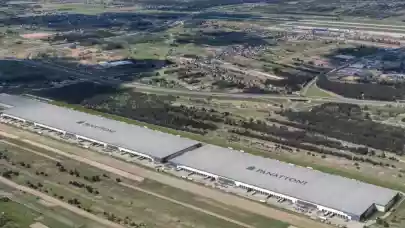
Analysis of 44 key office markets in EMEA showed a 155,000 sqm increase in the total amount of flex workspace, according to Colliers. This increase equates to 25,000 extra desks. Contributing to this increase was the addition of 285,000 sqm of newly opened space, but this was offset by 130,000 sqm of space that closed and a further 23,000 sqm that was abandoned. However, nearly a third of the space that closed was due to WeWork streamlining its business in key European locations such as Barcelona, Copenhagen, London and Oslo.
Tom Sleigh, Head of Flexible Workspace Consulting, EMEA Occupiers Services at Colliers said: “As occupiers increasingly turn to flex solutions to support new hybrid working practices, confidence is returning to the sector and operators are now looking outward for expansion opportunities. Several markets have reported rising occupancy rates for flex space. Noticeably Dublin and Copenhagen have reported that demand has taken occupancy rates to close to capacity.”
Supporting the Flexpansion 2021 report are the results from Colliers 2021 flexible workspace survey. Respondents stated:
- 60% of operators are more likely to enter new markets in the next 12 months
- 67% of operators are likely to expand speculatively in the next 12 months
- 77% stated they had seen an increase in demand for pay-as-you-go hot desk membership
- 72% reported an increase in the average number of desks per flex deal
Operator activity
IWG continues to expand quicker than it is consolidating with 15 new projects due to open this year and into 2022 across the Regus and Space brands. Looking forward, the IWG-WeWork duo accounts for only 20% of the active pipeline, which is notable as they account for a third of all existing stock. Commenting, Tom said: “A diversification of operators could lead to smaller players becoming more active and ultimately delivering more diversity of products and concepts in the flex market.”
We are seeing a significant increase in partnerships between operators, driven by investors’ appetite for direct exposure to the sector and for specialist operators to deliver enhanced shared tenant amenities. In addition, landlords are increasingly developing their own flex products, predominately as a reaction to occupiers demanding all-inclusive and flexible solutions as they navigate the return to work.
Location expansion
The amount of flex space in the EMEA office market only accounts for 2% of supply, leaving the office door firmly open for existing and new operators to enter the market. An example of this is Grafter who has expanded in Dublin and Microlab in Rotterdam, while X+Why has agreed four management agreements in Birmingham and London, doubling their presence within a year. In Finland, YIT acquired UMA Workspace and established YIT Workery+ across three sites in Helsinki’s metropolitan area. LandSec’s Myo flex product opened their second location and The Office Group entering into a management agreement with Argent to develop a new 1,600 sqn workspace hub in London’s Kings Cross. Welkin and Merkai have agreed on terms for their third Paris location with UBW in La Defence, Design Offices is upscaling in Dusseldorf, while in Cairo, Riyadh and Dubai public bodies are driving the demand for smaller flex space.
Concluding Tom said: “As many organisations reconsider their workplace strategy and adopt hybrid working models the demand for flexible space is set to increase, as either satellite offices away from the main HQ or supporting new hybrid working strategies.
“Additionally, the pressure that ESG commitments are likely to place on real estate may contribute to an increase in demand for flex space as existing office stock is expected to face the need to retrofit to meet impending ESG requirements. While this retrofitting is undertaken, or leases come to an end, organisations may look to locate themselves in flex space in the interim.”



